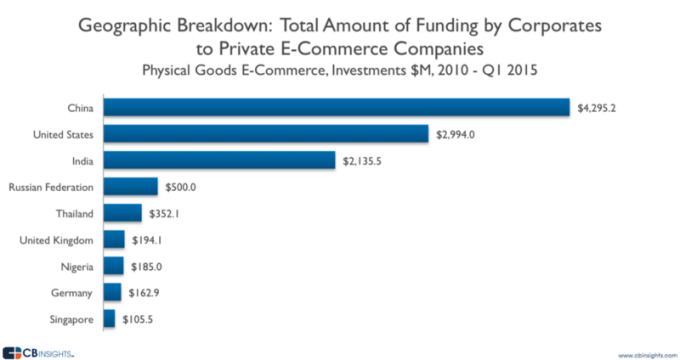Africa’s first unicorn, Jumia has completed the closure of its Cameroonian operations. The process was declared complete when the ecommerce company fired all of its staff and closed down its entire operations in Cameroon, amid mounting losses. The closure however, did not start today; it began in 2014 amid allegations of fraud which cost the business up to $1 billion. The closure of Jumia ‘s Cameroon operations is the second in a row after the online retailer closed its entire Rwandan e-commerce business in 2017 over quality issues, focusing on its food delivery services in the country.
Fintech, the New Profitable Model?
Jumia ’s closure in Cameroon cannot just be disregarded. The New York-listed company has made it clear in recent times that it is shifting more of its focus on its payment platform, Jumia pay while cutting back on the e-commerce business. Indeed, unconfirmed sources say Jumia is contemplating pulling out of its Congo and Gabon operations too. Consequently, the company now maintains presence in 13 African countries including Kenya, Ghana, Senegal, Nigeria, South Africa, Egypt, Morocco, Uganda, Tanzania, Rwanda, Ivory Coast, Tunisia, and Algeria.
Read also: Behold Jumia, The German Company That Became A Nigerian Fraud
Could the new focus on fintech be a major indictment on eCommerce in Africa?
Recall that Konga, a similar eCommerce company, recently gave up the ghost earlier than expected and got swallowed up by Zinox Group, a deal that was quoted in some quarters to be worth $32.4 million, which was grossly a sad event for an e-commerce company that was once valued at $383 million by Naspers.
From disclosures made in the Prospectus to the Initial Public Offering, it does not also appear that Nigeria, Jumia’s primary market, is seriously considering investing significantly in the eCommerce business. As a matter of fact, about 60.5% of Jumia’s shareholding before going on its first public offering consisted of European nationalities, while South Africa takes a staggering 29.7% of the shareholding at the said time. Even before Konga was acquired by Zinox Group, Kinnevik (Swedish) and Naspers (South African owner of Multi-Choice, M-Net, OLX) had a combined shareholding of 89.4%. Perhaps the fear would lie in the humongous losses sustained by these companies.

Jumia’s losses increased by 60% from €41.9 million (KSh4.8 billion) in first half of 2018 to € 66.7 million (KSh7.6 billion) in the first half of 2019. The Berlin-based company also recorded a loss of KSh 6.2 billion in Q2 of 2019, a 60% increase from 2019 Q1 losses.
Citron Research (the American research firm that publishes reports on firms that Citron Research founder, Andrew Edward Left thinks are overvalued or are engaged in fraud) had earlier in 2019, in the aftermath of Jumia’s IPO, said, in a twelve-page document, that it had never seen such an obvious fraud as Jumia’s first Initial Public Offering, held from the 11th of April, 2019, in its 18 years of publishing.
Read also: As Jumia Goes Public, Key Points Every Entrepreneur Should Know
Late August, 2019 Jumia fired some of its employees in Nigeria and suspended a number with regards to improper sales practices. Jumia Technologies AG said it identified dubious transactions that accounted for approximately 4 per cent of its sales in the first quarter of 2019.
The Berlin Based company revealed that independent sales agents under its “J-Force” sales platform worked with employees and sellers to make undeserved gains from commissions and seller fees.
So Jumia ‘s closing of its Cameroon ‘s operations could be part of a long term strategy of migrating over to fintech.
Charles Rapulu Udoh

Charles Rapulu Udoh is a Lagos-based Lawyer with special focus on Business Law, Intellectual Property Rights, Entertainment and Technology Law. He is also an award-winning writer. Working for notable organizations so far has exposed him to some of industry best practices in business, finance strategies, law, dispute resolution, and data analytics both in Nigeria and across the world
